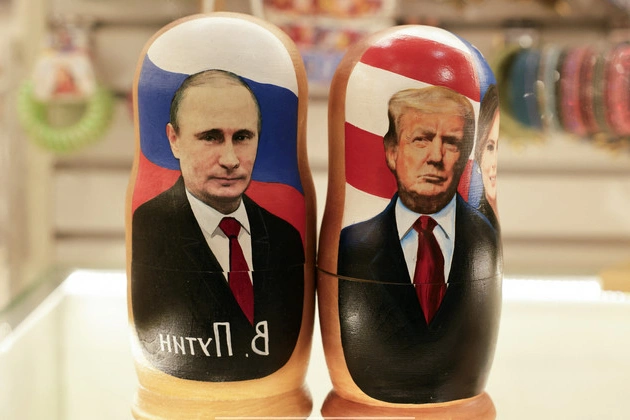
NEW DELHI — Amidst the bustling corridors of the Raisina Dialogue in New Delhi, a senior European official paused mid-conversation at the sight of two men passing by. “They’re with the Russian delegation,” he whispered, hinting at the cautious atmosphere surrounding interactions with Russian officials.
At the heart of this dilemma lies the question of whether Western powers should engage in dialogue with the Russians and, if so, under what terms.
Complex Diplomatic Interactions
The Raisina Dialogue serves as a unique platform where top defense officials and diplomats from around the world convene, including representatives from Russia, Iran, and NATO countries.
Since Russia’s incursion into Ukraine, the Russian delegation has been met with skepticism and apprehension from Western counterparts. However, recent diplomatic overtures between President Trump and President Putin have sparked discussions within NATO about the possibility of reinitiating dialogue with Russia.
Awkward Encounters and Emerging Opportunities
During a panel session at the conference, the tension between differing perspectives on Russia was palpable. Former Australian Prime Minister Tony Abbott’s question to a Russian Duma member about Ukraine’s sovereignty underscored the divergent views on the conflict.
Despite the awkward exchanges, the mere presence of Russian and American officials sharing a panel signifies a potential shift in diplomatic dynamics.
A Path to Peace or a Political Posture?
As global leaders contemplate the prospect of engaging with Russia, opinions vary widely. While some advocate for dialogue as a means to seek peace, others remain skeptical of Russia’s intentions amidst ongoing military actions.
Indian officials emphasize the importance of inclusivity in diplomatic efforts, highlighting the need for all stakeholders to be part of the peace process.
Navigating Diplomatic Waters
While the discussions at Raisina Dialogue offer a glimpse into the evolving diplomatic landscape, the path forward remains uncertain. The delicate balance between engagement and scrutiny defines the current state of international relations.
As the world watches closely, the question of whether to engage with Russian officials lingers, echoing the complexities of modern diplomacy.











